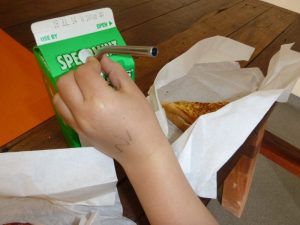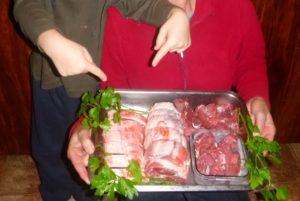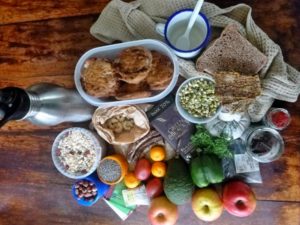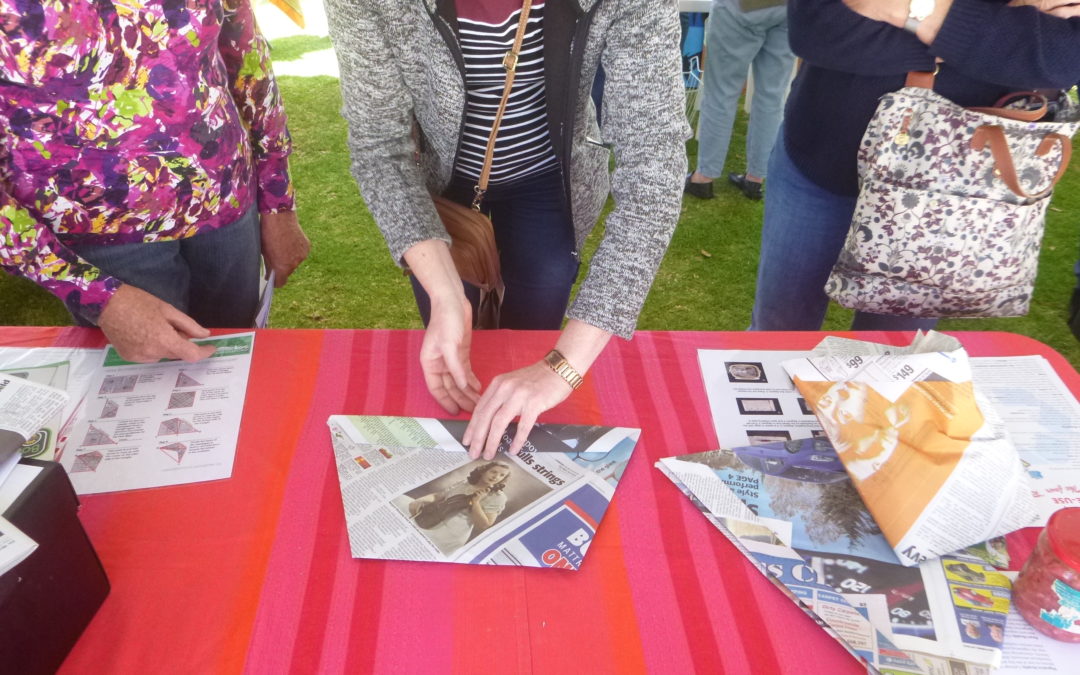Are you ready for the Plastic Bag Ban in WA?
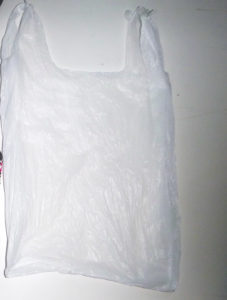
Many shops are already ceasing to supply single use plastic bags. From 1st July 2018, anyone selling goods in WA will not be allowed to sell or supply plastic bags under 35 microns with handles. You will still be able to buy bin liners, thicker plastic bags and lightweight produce bags, however it’s better for the environment to avoid these items as well. Are you ready?
What will I use to line my bin?
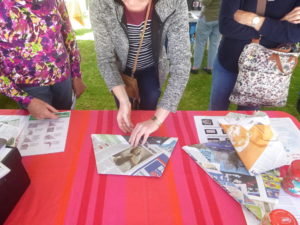
Have you been reusing plastic bags to line your bin? Even though this is reusing, they still end up in landfill. And in July, they’ll no longer be available. Green Skills has a free instruction sheet for how to fold bin liners from old newspapers. If you don’t get the paper, ask your local newspaper company, Lions recycling depot, friends or workplace if they have old newspapers you can have for free. It’s more convenient to fold up a stack at once and store them near your bin.
If you choose to buy new bin liners, look for certified compostable bin liners. Some are certified for home composting, which means they don’t need high temperatures to break down. DO NOT buy ‘degradable‘ bin liners – this just means they break down into microplastics that pollute the environment. ‘Biodegradable’ means they break down into pieces that can be eaten by microbes and turned back into life (‘bio’).
You can also use no bin liner, and just wash your bin more frequently. Take care that loose rubbish is not blown out of your council bin. Going without bin liners is especially easy if you are keeping organic waste out of your rubbish bin (which helps the environment because it returns fertility to your backyard instead of creating methane in landfill). Do you need to set up a worm farm or compost heap, or start burying scraps in the garden?
What can I use to carry my groceries?
Download a guide to reusable bags. Don’t forget net bags, baskets and old-fashioned granny trolleys. All bags are more sustainable if they are used as many times as possible (including paper, cotton and polypropelene). Use what you have instead of buying new ones where possible. Look for recycled cloth bags rather than new fabric. Cloth rice and flour sacks make good bags. Wash your cloth bags if they have food spilt inside them or if they smell, and hang in the sunshine to dry.
How will I remember my bags?
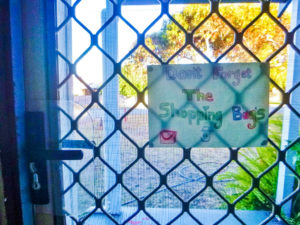
You have options. Pack bags that fold small into your handbag, car boot, pram or bike. Hang shopping bags on a hat rack or pegs near the front door. Download a free door hanger with a bag reminder. Put a note by the front door. Some shops supply free cardboard boxes (reuse, recycle, cut up for worm food, mulch your garden or repurpose afterwards). Some shops participate in the Boomerang Bag scheme, where volunteers sew cloth bags that shoppers can borrow and return.
Green Skills surveyed shoppers at a supermarket in Albany in January and June. In January, only one third of shoppers were using cloth bags, and two thirds were using plastic bags. In June, just over half of shoppers were using either cardboard boxes, cloth bags or carrying their groceries with no box or bag. Less than half were using plastic bags. We are getting there!
Plastic Free July starts on the 1st of July. You can pledge to refuse all single use plastic (an enlightening challenge!) or just the big four items: plastic straws, coffee cups, plastic water bottles and plastic bags. The Plastic Ban Ban in WA also starts on the 1st of July. Many shops are also starting to phase out plastic straws. So this year’s Plastic Free July will be extra easy! Give it a go here.
